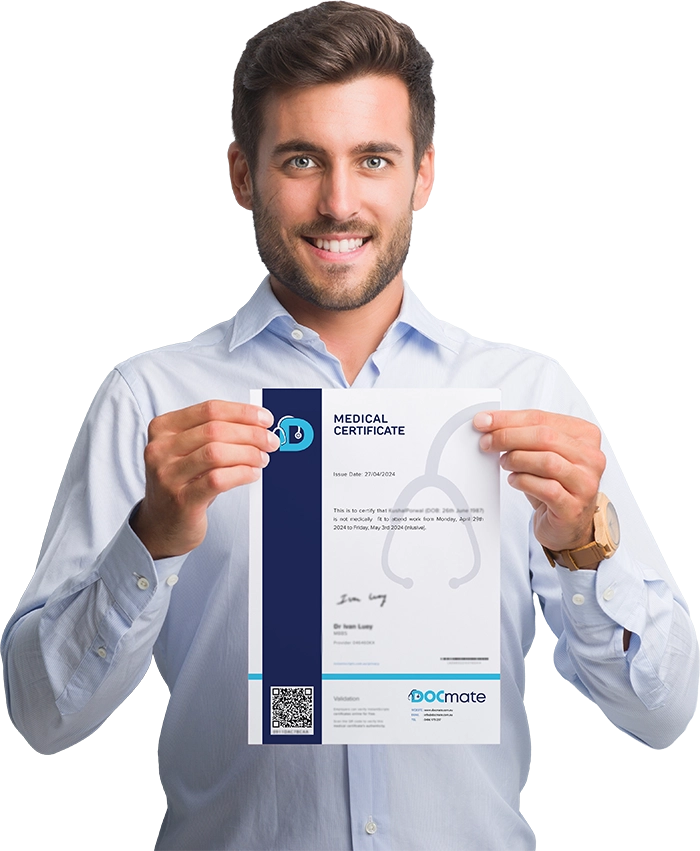
Are Online Medical Certificates Legal in Australia What You Need to Know
Here’s the thing. No one really plans to wake up with a fever on the morning of a big meeting. Or lose their voice the night before an exam. Life throws those curveballs and suddenly you’re scrambling to explain yourself to a boss, lecturer, or HR department. Traditionally, that meant dragging yourself out of bed, into a waiting room, and paying a consultation fee just to get a slip of paper. Enter the Online Medical Certificate.
It sounds simple enough. Log in. Have a quick telehealth chat. Get your certificate emailed straight over. But the question people keep asking is the same: is it actually legit? Let’s unravel that.
What the Law Actually Says
In Australia, a medical certificate—whether issued face-to-face or online—holds the same weight as long as it’s written by a registered healthcare practitioner. That’s the key. The law doesn’t care if the doctor is sitting across from you or behind a webcam.
So yes, an Online Medical Certificate is legal, provided it’s issued by someone with the right qualifications. Doctors, nurse practitioners, certain specialists. What matters is their registration with AHPRA (the Australian Health Practitioner Regulation Agency). No registration? No certificate.
But Will My Boss Accept It?
This is where it gets murky. Technically, employers are meant to accept a valid Online Medical Certificate just like a traditional one. But in practice? Some managers still raise eyebrows. Maybe they haven’t caught up with the telehealth shift. Maybe they assume “online” means “dodgy.”
Here’s the reality: more workplaces are coming around. Especially since COVID changed the way we all think about healthcare. If you’re worried, the safest move is to use a reputable telehealth provider—one that clearly displays its practitioners’ qualifications. That transparency tends to ease scepticism.
Why the Demand Exploded
Let’s be honest. No one enjoys sitting in a GP’s waiting room with twenty other coughing strangers just to walk away with a signed note. The appeal of an Online Medical Certificate is obvious. Convenience. Speed. The fact you can do it without changing out of pyjamas.
But it’s not just about comfort. For people in regional areas, online certificates bridge a serious gap. Not every town has a bulk-billing GP, and some clinics are booked out for weeks. Telehealth has made sick leave documentation more accessible, and in a way, fairer.
The Trust Factor
Here’s where the conversation gets interesting. Critics argue that an Online Medical Certificate makes it “too easy” for people to misuse the system. Call up, fake a cough, get a note. But that stereotype doesn’t hold much weight. Doctors don’t hand out certificates like candy. Whether online or in person, practitioners are required to apply the same professional judgement.
Think about it. If someone were determined to fake illness, they could do that in a physical consultation too. The medium isn’t the problem—it’s the intent of the person. Most Australians aren’t trying to scam the system. They just need a legitimate way to document their health when they can’t show up to work or uni.
A Small but Crucial Difference
Here’s a quirk worth knowing. Some employers might specify that they want a certificate covering the exact period of absence. With an Online Medical Certificate, that can usually be arranged, but you need to be clear when you request it. Telehealth doctors often issue certificates for short-term conditions, like one or two days off. If you’re dealing with something more chronic, a traditional consultation might still be required.
So, it’s not a one-size-fits-all solution. More like another tool in the kit.
Students Love Them (And Here’s Why)
Universities across Australia now accept an Online Medical Certificate for missed exams, assignments, or classes. And honestly, it’s a lifesaver. Students are already stretched thin—financially and emotionally. Having to fork out $90 for a face-to-face appointment just to prove you were unwell? That adds insult to injury.
Digital certificates make education more accessible. They reduce barriers. And they give students a way to focus on recovering, not paperwork.
The Future Is Paperless
Let’s step back for a second. Think about how much of our lives have gone digital in the past decade. Banking. Shopping. Even voting, in some states. It’s no surprise that health admin—like medical certificates—is shifting too. In a few years, we’ll probably laugh at the idea of physically queuing for a signed piece of paper. The Online Medical Certificate is just the beginning of that transformation.
That said, old habits die hard. There will always be pockets of resistance. Some industries still cling to paper. Some managers are sceptics by nature. But the direction of travel is clear: online healthcare isn’t going anywhere.
Quick Recap (Because Let’s Be Honest, This Was A Lot)
- Yes, an Online Medical Certificate is legal if issued by a registered practitioner.
- Employers are expected to accept it, though individual attitudes vary.
- It’s especially valuable for regional Australians, students, and anyone who values convenience.
- Abuse of the system? Possible. But no more so than with in-person consultations.
- The future is digital, whether we’re fully ready or not.
Final Thought
If you’re lying in bed with a migraine, the last thing you want is the stress of proving it. The good news is, you don’t have to anymore. An Online Medical Certificate from DocMate is just as valid, often quicker, and definitely less of a hassle.
It’s one of those small shifts in modern life that, once you try it, makes you wonder why we didn’t do it this way all along.


